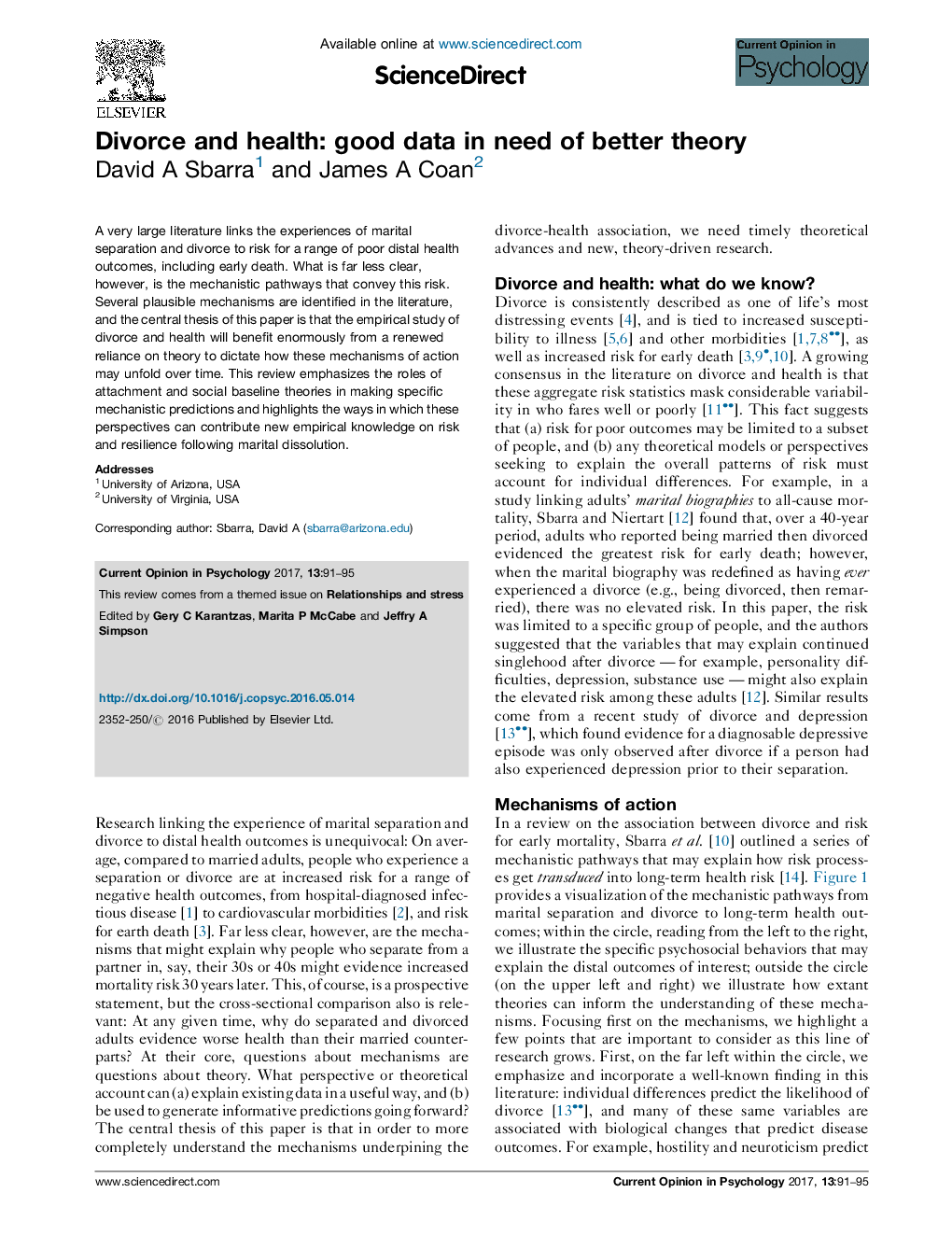| Article ID | Journal | Published Year | Pages | File Type |
|---|---|---|---|---|
| 879224 | Current Opinion in Psychology | 2017 | 5 Pages |
•Divorce is associated with increased risk for a range of negative health outcomes.•Far less clear, however, are the mechanisms of action that explain this overall risk.•This review highlights the role of individual differences predicting marital dissolution.•The paper also focuses on three mechanistic pathways that link divorce with health risk.•We highlight attachment theory and social baseline theory for understanding these mechanisms.
A very large literature links the experiences of marital separation and divorce to risk for a range of poor distal health outcomes, including early death. What is far less clear, however, is the mechanistic pathways that convey this risk. Several plausible mechanisms are identified in the literature, and the central thesis of this paper is that the empirical study of divorce and health will benefit enormously from a renewed reliance on theory to dictate how these mechanisms of action may unfold over time. This review emphasizes the roles of attachment and social baseline theories in making specific mechanistic predictions and highlights the ways in which these perspectives can contribute new empirical knowledge on risk and resilience following marital dissolution.
